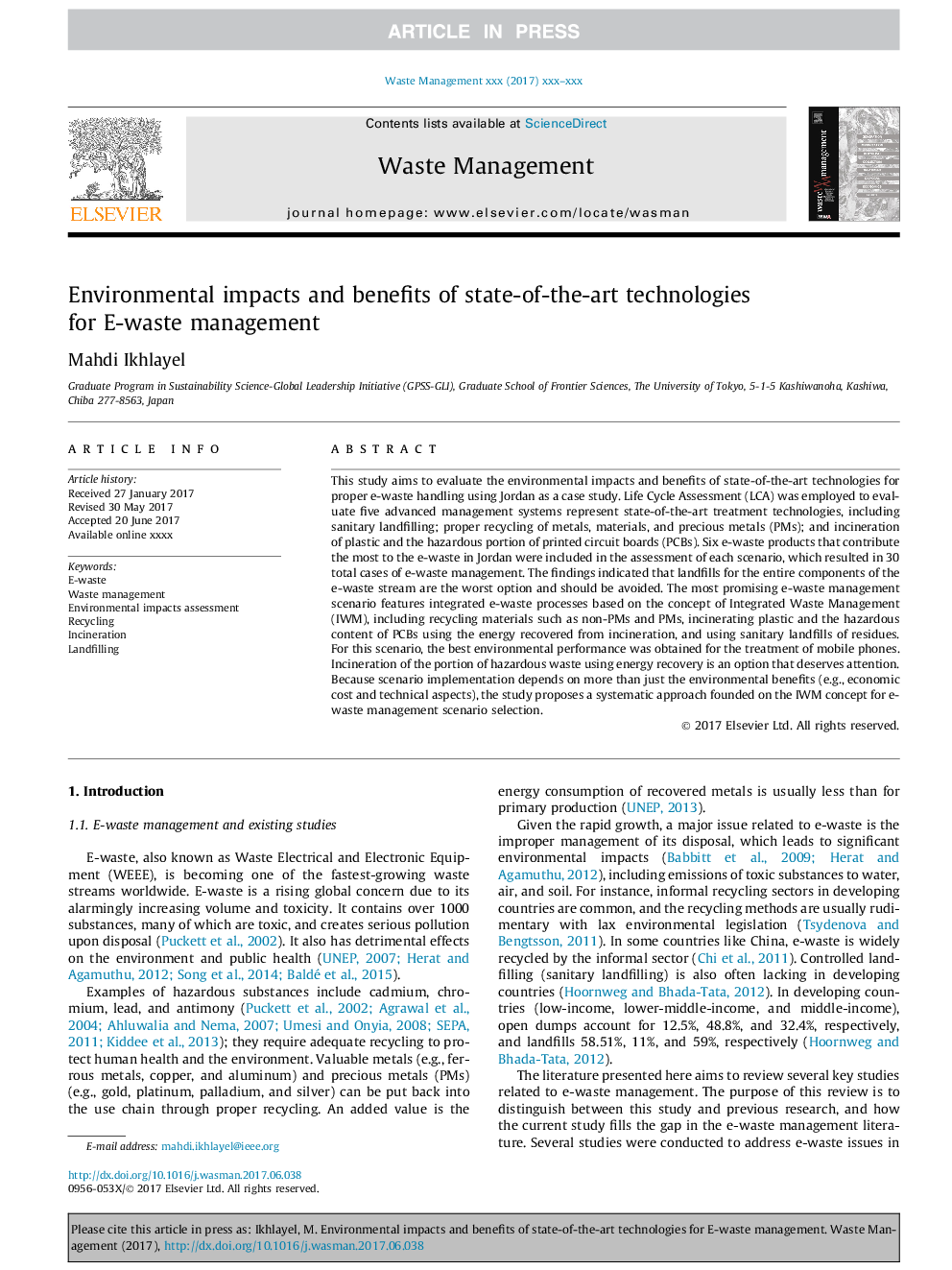ترجمه فارسی عنوان مقاله
اثرات زیست محیطی و مزایای فن آوری های پیشرفته برای مدیریت زباله های الکترونیکی
عنوان انگلیسی
Environmental impacts and benefits of state-of-the-art technologies for E-waste management
| کد مقاله | سال انتشار | تعداد صفحات مقاله انگلیسی |
|---|---|---|
| 100450 | 2017 | 17 صفحه PDF |
منبع

Publisher : Elsevier - Science Direct (الزویر - ساینس دایرکت)
Journal : Waste Management, Volume 68, October 2017, Pages 458-474

